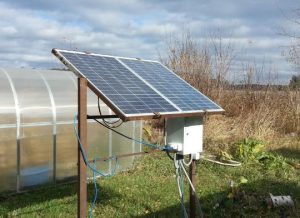Solar Panels in the Dark: How Long Can They Last Without Sun?
When considering the switch to solar energy, one critical question often arises: how long can solar panels last without sun? It’s not just about enduring a cloudy day but understanding the resilience of solar technology during prolonged periods of darkness. This article delves into the mechanics of solar panels, their battery backup capabilities, and real-world data to shed light on what happens when the sun doesn’t shine.

The Backbone of Solar Technology
Solar panels, at their core, convert sunlight into electricity. However, what happens during sunless periods is a testament to modern engineering. The key lies in the panels’ ability to store energy, typically through battery systems, to ensure a consistent power supply. The efficiency and longevity of these systems during dark periods hinge on several factors, including battery capacity, energy consumption rates, and the initial energy reserve.
Battery Backup: The Unsung Hero
A solar panel system without a battery backup is like a car without a gas tank; it can only operate when it has an immediate supply. Modern systems, however, come equipped with batteries that store excess power for future use. These batteries vary in capacity but often provide enough energy to sustain a home for 24 to 48 hours without sunlight. In areas with frequent sun, systems can recharge daily, virtually eliminating the risk of running out of power.
For those wondering about how long can solar panels last without sun, the answer lies in the efficiency and capacity of these battery backups. During prolonged darkness, a fully charged battery system can support critical loads—like refrigeration, lighting, and communication devices—for several days.
Real-World Data: A Clearer Picture
Consider a typical home solar installation with a 10-kilowatt-hour (kWh) battery capacity. With an average household consumption of 28.9 kWh per day in the U.S., a fully charged battery could support essential functions for about a third of a day without sunlight. However, by prioritizing lower energy consumption and efficient appliances, households can extend this duration significantly.
The Role of Energy Efficiency
Energy efficiency plays a pivotal role in maximizing the duration solar panels can last without sun. LED lighting, energy-efficient appliances, and smart home systems can reduce daily energy consumption, allowing battery reserves to stretch further. In practice, homes that adopt these technologies report a marked increase in their system’s resilience during dark periods.
Preparation Meets Innovation
Preparing for extended periods without sunlight involves more than just having a battery backup. It involves understanding your energy consumption patterns and optimizing them. Regular maintenance of your solar panel system also ensures peak performance, maximizing the energy harvested during sunny days.
A Bright Future
The future of solar energy is bright, with advancements in battery technology and solar efficiency promising longer durations of power supply during darkness. Innovations like lithium-ion batteries offer higher energy densities and longer lifespans, pushing the boundaries of how long solar systems can operate independently of sunlight.
In conclusion, the question of how long can solar panels last without sun reflects a dynamic interplay between technology, efficiency, and human adaptation. With strategic planning and technological advancements, solar energy remains a reliable and resilient power source, even in the absence of sunlight. For more in-depth insights, explore the detailed analysis here.
Embracing solar energy means investing in a system that stands the test of time and darkness, highlighting the enduring power of the sun, even when it’s not visible.